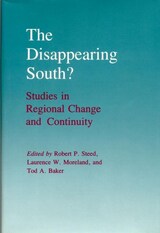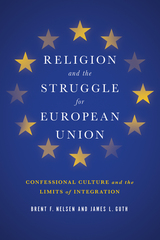
From the first rumblings of the Moral Majority over twenty years ago, the Christian Right has been marshalling its forces and maneuvering its troops in an effort to re-shape the landscape of American politics. It has fascinated social scientists and journalists as the first right-wing social movement in postwar America to achieve significant political and popular support, and it has repeatedly defied those who would step up to write its obituary. In 2000, while many touted the demise of the Christian Coalition, the broader undercurrents of the movement were instrumental in helping George W. Bush win the GOP nomination and the White House. Bush repaid that swell of support by choosing Senator John Ashcroft, once the movement's favored presidential candidate, as attorney general.
The Christian Right in American Politics, under the direction of three of the nation's leading scholars in the field of religion and politics, recognizing the movement as a force still to be reckoned with, undertakes the important task of making an historical analysis of the Christian Right in state politics during its heyday, 1980 to the millennium. Its twelve chapters, written by outstanding scholars, review the impact and influence of the Christian Right in those states where it has had its most significant presence: South Carolina, Virginia, Texas, Florida, Michigan, Iowa, Kansas, Minnesota, Colorado, California, Maine, and Oregon and Washington.
Since 1980, scholars have learned a good deal about the social characteristics, religious doctrine, and political beliefs of activists in and supporters of the Christian Right in these states, and each contribution is based on rigorous, dispassionate scholarship. The writers explore the gains and losses of the movement as it attempts to re-shape political landscapes. More precisely, they provide in-depth descriptions of the resources, organizations, and the group ecologies in which the Christian Right operates-the distinct elements that drove the movement forward.
As the editors state, "the Christian Right has been engaged in a long and torturous 'march toward the millennium,' from outsider status into the thick of American politics." Those formative years, 1980-2000, are essential for any understanding of this uniquely American social movement. This rigorous analysis over many states and many elections provides the clearest picture yet of the goals, tactics, and hopes of the Christian Right in America.

There is widespread agreement that the South has changed dramatically since the end of World War II—the essays in The Disappearing South address the ongoing debate
There is widespread agreement that the South has changed dramatically since the end of World War II. Social, demographic, economic, and political changes have altered significantly the region long considered the nation’s most distinctive. There is less agreement, however, about the extent to which the forces of nationalization have eroded the major elements of Southern distinctiveness. Although this volume does not purport to settle the debate on Southern political change, it does present a variety of recent evidence that helps put this important debate into perspective. In the process it helps clarify the contemporary politics of the South for readers ranging from the scholar to the more casual observer.
The essays in The Disappearing South address the ongoing debate. Contributors, in addition to the editors, include E. Lee Bernick, Earl Black, Merle Black, Lewis Bowman, Edward G. Carmines, Patrick Cotter, Thomas Eamon, Douglas G. Feig, John C. Green, James L. Guth, William E. Hulbary, Anne E. Kelley, Lyman A. Kellstedt, David M. Olson, John Shelton Reed, Harold Stanley, James G. Stovall, John Theilmann, Stephen H. Wainscott, and Allen Wilhite.

In Religion and the Struggle for European Union, Brent F. Nelsen and James L. Guth delve into the powerful role of religion in shaping European attitudes on politics, political integration, and the national and continental identities of its leaders and citizens.
Nelsen and Guth contend that for centuries Catholicism promoted the universality of the Church and the essential unity of Christendom. Protestantism, by contrast, esteemed particularity and feared Catholic dominance. These differing visions of Europe have influenced the process of postwar integration in profound ways. Nelsen and Guth compare the Catholic view of Europe as a single cultural entity best governed as a unified polity against traditional Protestant estrangement from continental culture and its preference for pragmatic cooperation over the sacrifice of sovereignty. As the authors show, this deep cultural divide, rooted in the struggles of the Reformation, resists the ongoing secularization of the continent. Unless addressed, it threatens decades of hard-won gains in security and prosperity.
Farsighted and rich with data, Religion and the Struggle for European Union offers a pragmatic way forward in the EU's attempts to solve its social, economic, and political crises.

The Christian Right never ceases to surprise professional observers of American politics. With the Christian coalition in disarray, many expected that the movement would play less of a role in the 2004 elections. But when exit polls reported that "moral values" were the most commonly cited reason for presidential vote choice, pundits immediately proclaimed the importance of the "values vote." Yet the role of the Christian Right, of statewide referenda on same-sex marriage, and of religious mobilization remained the subject of debate. The Values Campaign? The Christian Right and the 2004 Elections reaches well beyond the instant analyses of the post-election period to provide an assessment of the role of the religious right in 2004. The contributors to this volume are among the leading scholars of religion and politics in the United States, and many have contributed for over a decade to ongoing discussions of the role played by the religious right in national elections.
The authors consider national mobilization and issues, and also explore the role of the Christian Right in specific states. Their evaluations contend that the "values campaign" was not an aberration but a consistent pattern of national politics, and that moral traditionalism will likely continue to be a significant factor in future elections.
A timely study of the 2004 elections, this volume will appeal to scholars and observers of electoral politics, state politics, and religion and politics.
READERS
Browse our collection.
PUBLISHERS
See BiblioVault's publisher services.
STUDENT SERVICES
Files for college accessibility offices.
UChicago Accessibility Resources
home | accessibility | search | about | contact us
BiblioVault ® 2001 - 2024
The University of Chicago Press









